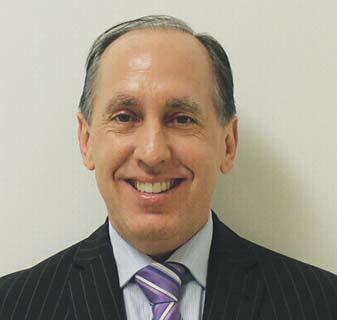
3 minute read
A
Download on a schedule for regular maintenance, upgrades and replacement. This last factor is especially important, as it ensures that all the equipment remains leading-edge.
“Everything is life-cycled,” said Sun. “In a traditional hospital, they’ll often run their equipment as long as possible, until it can’t be used any longer.” There’s an economic argument for that, but it means that patients are not receiving care using the latest available solutions.
Partnering with an MES provider will allow physicians and other clinicians to use the best tools available to deliver care.
Jarrett used to work at the Humber River Hospital, which just celebrated its seven-year anniversary of using an MES agreement with GE Healthcare. He’s familiar with the value that can be achieved, as well as with the advantages of timely renewals of equipment.
Acquiring capital equipment, he says, is one of the biggest problems in the healthcare system. And the annual budgeting process in many hospitals, he adds, “is like the NHL draft. Everyone is bidding for what they need.”
However, depending on the politics and economics at work in a particular hospital, the DI department may lose out on its bid for a new MRI, or the surgeons may not get the image-guided equipment that they wanted. Amid the fray, upgrading workhorse items like bedside monitors can sometimes be overlooked. www.infoway-inforoute.ca
With an MES agreement worked out to cover the long term, everything that’s needed can be accounted for, serviced, and replaced long before it becomes obsolete.
Canada Health Infoway
CANADA’S MAGAZINE FOR MANAGERS AND USERS OF INFORMATION TECHNOLOGY IN HEALTHCARE Volume 28, Number 1 February 2023
The arrival of ‘best-of-breed’ equipment becomes predictable for the hospital, just as a revenue stream is predictable for the vendor – a true win/win arrangement.
Sun noted that the selection of equipment is decided collaboratively by the hospital and the vendor. “Our clinicians will be closely involved in the choice of equipment,” he said. “The vendor will tell us what’s new when it comes to technology, but our clinicians will tell them what they really need. We’ll explain our requirements.”
Under MES agreements, some of the equipment is provided by the vendor, using its own brand-name technology. However, there’s typically a percentage of the mix that can be supplied by outside vendors. This percentage is part of the negotiations that are involved in writing the MES contract.
With an MES, the winning vendor provides staff that work closely with the hospital team. Jarrett noted that they become very engaged with the clinicians in the medical and administrative challenges and help to provide solutions.
This will be encouraged at Trillium, as the hospital has recently expanded its research and development work. “We have a research division now that’s engaged mostly in applied research. We’re hoping that the partnership with an MES vendor will open this up even further.
“We’d like to try out different models.”
The technologies that are included in the MES are equipment for Diagnostic Imaging, Surgery, Cardiology, Women and Children’s Health, as well and monitors and ventilators. Items that aren’t a part of the MES are more commonplace products, such as beds and furniture.
With his experience at Humber River Hospital, and the current project at Trillium Health Partners, Jarrett is convinced that MES contracts are the way to go for new hospitals. Noting that to date, there haven’t been too many of them, he asserted: “It’s a missed opportunity.”
Publisher & Editor Jerry Zeidenberg jerryz@canhealth.com

Contributing Editors
Dianne Craig dcraigcreative@yahoo.ca
Art Director Walter Caniparoli art@canhealth.com
Address
Thornhill ON L4J 7R9 Canada. Telephone: (905) 709-2330. Fax: (905) 709-2258. Internet: www.canhealth.com. E-mail: info2@canhealth.com. Canadian Healthcare Technology will publish eight issues in 2023. Feature schedule and advertising kits available upon request. Canadian Healthcare Technology is sent free of charge to physicians and managers in hospitals, clinics and nursing homes. All others: $67.80 per year ($60 + $7.80 HST). Registration number 899059430 RT. ©2023 by Canadian Healthcare Technology. The content of Canadian Healthcare Technology is subject to copyright. Reproduction in whole or in part without prior written permission is strictly prohibited. Send all requests for permission to Jerry Zeidenberg, Publisher. Publications Mail Agreement No. 40018238. Return undeliverable Canadian addresses to Canadian Healthcare Technology, 1118 Centre Street, Suite 204, Thornhill ON L4J 7R9. E-mail: jerryz@canhealth.com. ISSN 1486-7133
Office Manager Neil Zeidenberg neilz@canhealth.com
Dianne Daniel dianne.l.daniel@gmail.com
Dr. Sunny Malhotra Twitter: @drsunnymalhotra
Norm Tollinsky tollinskyn@gmail.com
Art Assistant Joanne Jubas joanne@canhealth.com





